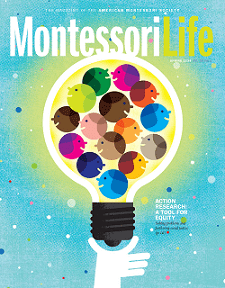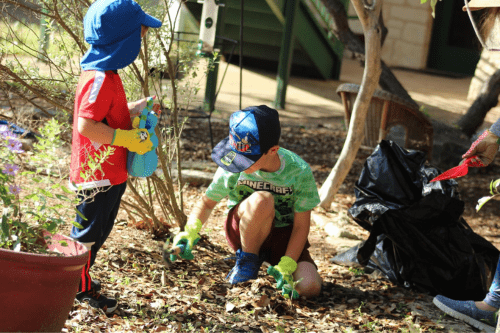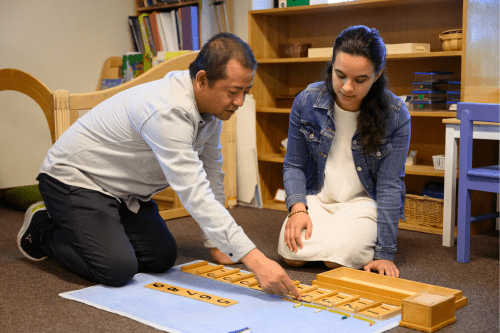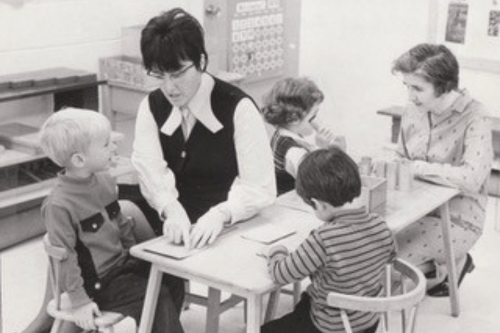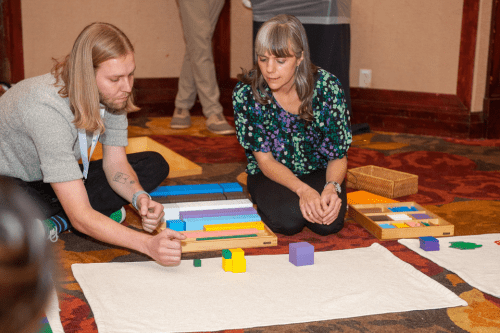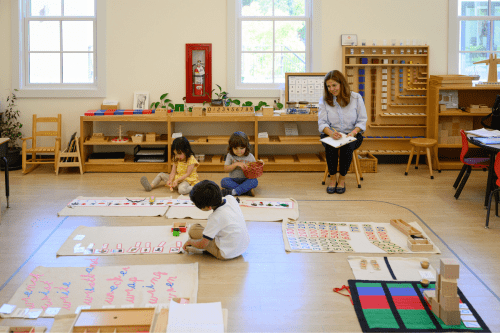How to Integrate Behavior Therapy into Montessori Environments
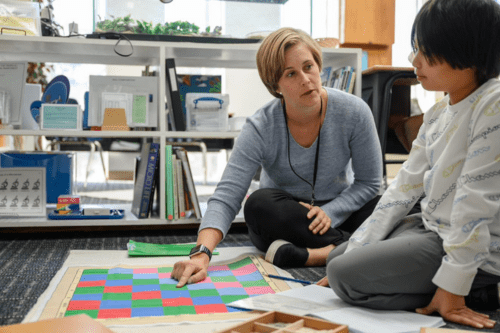
Author Marianne Williamson once said, “A change of heart leads to change in behavior, and a change in behavior leads to changing the world.”
As Montessorians, our hope is to change the world through the only path that can truly lead us there, children. Given this task, the question remains of how to undergo this change of heart that can lead to a change in behavior capable of changing the world.
This change of heart takes place when guides are able to observe a child, separate the child from the behavior, and provide them with the support needed to continue encouraging their learning, growth, and development. For some children, additional tools and strategies may be necessary above and beyond that which is typical of a Montessori behavior management system. In these cases, behavior therapy can often provide the support needed to ensure every child experiences success.
What is Behavior Therapy?
Behavior therapy is a series of strategies and interventions that help support children in strengthening positive behaviors and eliminating or reducing unwanted or challenging behaviors.
Applied Behavior Analysis (ABA) is one of the most common behavioral therapies for children that helps them develop skills and reduce problem behaviors. It involves observing what occurs before and after a behavior and altering those triggers or reinforcements in order to change the behavior.
A popular component of behavior therapy is parent (or teacher) training in behavior management. This is where a behavior therapist works with parents, caregivers, or educators to help them learn or improve skills to more positively manage a child’s behavior. According to Children and Adults with Attention-Deficit/Hyperactivity Disorder (CHADD), “Parents [and/or teachers] learn to create structure, reinforce good behavior, discourage negative behaviors, provide consistent discipline, and strengthen the relationship with their child through positive communication.”
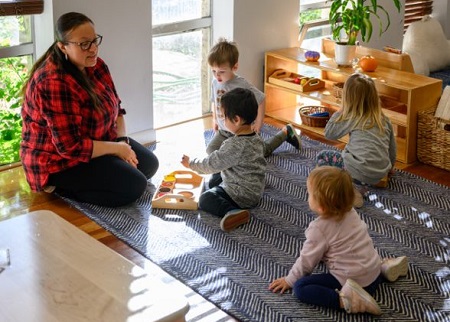
Behavior therapy works well for children with Variable Attention Stimulus Trait (VAST) (VAST is a more representative name developed by Dr. Edward Hallowell and Dr. John Ratey for a condition commonly known as Attention Deficit Hyperactivity Disorder (ADHD)); Autism Spectrum Disorder (ASD); and other disruptive behavior disorders. However, Christina Hesley, Board Certified Behavior Analyst (BCBA) from Hesley Behavioral Solutions who provides behavior support at the AMS member school, Elizabeth Academy, encourages, “ABA is for anybody that is struggling with a behavior challenge that is impacting their quality of life and the quality of life around them in school or at home, or both.”
The Importance of Behavior Therapy
Behavior therapy has been shown to help children manage symptoms like stress and anxiety as they learn to cope with negative emotions. As a result, it often improves social interactions and results in better moods.
Utilizing ABA techniques can provide support for all students and teachers, especially those experiencing significant challenges in the classroom. In fact, Hesley shares that, “In 2023, the most significant part of my job is decreasing teacher stress. If I can help a teacher decrease challenging behavior in their classrooms, I can help them decrease stress in general and improve the learning environment for other children as well that are impacted by the challenging behavior around them.”
Integration into the Montessori Setting
The process of providing behavioral therapy services in a Montessori setting is typically established through the initiation of a contractual or consultative relationship with a BCBA or Applied Behavioral Analyst (ABA).
Following concerns identified by a teacher, caregiver, staff member, or other therapist, a child may be found eligible for an Individualized Education Plan (IEP) or 504 Plan outlining the additional support that may be necessary for the student to be successful in the school environment. If it is deemed that the child is in need of behavioral support, an ABA or a BCBA could either make recommendations for caregivers and teachers to implement or could begin offering these services directly.
The multi-age groupings that occur naturally in Montessori settings often yield powerful benefits for students exhibiting challenging behavior. Peers are able to model appropriate behaviors and students learn by observing behavior strategies implemented with their classmates. As Hesley notes, “What we do for one student in the classroom often benefits all the students in the classroom.”
Hesley personally provides comprehensive services for Elizabeth Academy based on student, teacher, and administrative needs. She meets with the administrative team once each week to review a needs assessment they have completed in order to determine how they might best utilize her expertise. Sometimes she observes a student or a teacher and provides recommendations. Other times, she provides coaching for a teacher on how to respond to challenging behaviors and how to implement behavior interventions and/or strategies. She attends Student Support Team (SST) meetings regarding specific students, creates needed materials that are missing in classroom environments, assists in putting certain structures in place to support students’ behavior, and provides professional development training for staff. Hesley also mentions that she occasionally collaborates with other therapists and outside service providers in order to support students holistically.
Recommendations for Other Schools
For other Montessori schools that might be interested in providing behavioral therapy to students and families, Hesley has a few recommendations.
She first notes that although many people have behavior experience, truly understanding the services a BCBA can provide in a school environment is so helpful. They are able to help teachers and administrators understand the “why” behind the behavior in order to support true behavioral changes.
Additionally, Hesley mentions the burnout that is so prevalent amongst educators and how BCBAs can help provide invaluable support during these stressful moments. When situations seem overwhelming and teachers are frustrated that none of the strategies and techniques they have tried seem to be helping one or more of their students, a BCBA can step in to help address why these strategies have not been effective and can provide recommendations for others that may be more successful. Having an outside perspective allows them to observe and address not only a child’s behavior, but also the adult’s response, providing a more holistic approach.
Sadly, ABA services can be quite costly and are only covered by insurance if a student has an Autism diagnosis. Services like those Hesley provides through private practices are often private pay only. For students with documented Individualized Education Programs (IEPs) and/or 504 Plans, however, these services are often offered free of charge by the local public school district for enrolled students.
Some AMS members have expressed the view that behavior therapy/ABA is not aligned with Montessori philosophy and practice. Please know that AMS continues to collaborate with disabled and neurodivergent people in order to educate its staff and members and to assure that all voices are heard. We aim to publish pieces that keep disability justice in mind and we encourage Montessori educators to talk to Autistic individuals about their experiences with behavior therapy/ABA.
About the Author

|
Heather White, EdS, is a Montessori coach and consultant, content creator, and educator for adult learners, as well as a moderator and manager for the Montessori at Home (0 – 3 years) Facebook group. Formerly, she was a Montessori teacher, in-home caregiver, Lower Elementary coordinator, and associate head of school. She also has experience as a school psychologist intern. She is AMS-credentialed (Early Childhood, Elementary I) and is a Nationally Certified School Psychologist (NCSP). Contact her at hpratt@stetson.edu. |
The opinions expressed in Montessori Life are those of the authors and do not necessarily represent the position of AMS.



